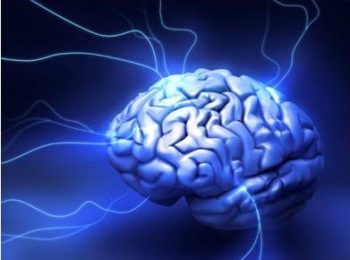The Car-Universe Without A Motor, part 9: Boltzmann Brain Matrix
This post talks about Boltzmann brains, which are an interesting, self-generating version of the Matrix. Which also throw a wrench in a number of common ideas about a random, self-generating universe.
Before we return to Boltzmann brains, let me mention the analogy of a car going uphill or downhill that launched this series. Said analogy rather breaks down when we start talking multiverses as I did in the last post–which at best would be something like the entire track for the car to travel reproducing itself a near-infinite number of times until a car by random forces alone had enough momentum to go up all hills in its path by inertia alone (even if that had it doing the equivalent of moving faster than the speed of sound).
Since talking about the multiverse isn’t very helpful in that analogy, I departed from it and talked about the multiverse on its own. Note that it was important to talk about the multiverse, because that plus the anthropic principle mentioned last week are how most cosmologists argue that it’s not significant that the origin of the universe as they discuss it calls for very extremely improbable events. So what if it does–they in effect say–multiverse means random forces have had enough shots to randomly create all that is (even if the universe is unbelievably improbable) + anthropic principle means of course we live in a universe where things just happened to work out–otherwise we would not know about it.
Though I actually talked about only one version of the multiverse. Many different types have been proposed, as I explained in one of my personal blog articles from 2012 that you can check out of you’d like to know more. What I didn’t talk about in my blog post was the basic shortcoming of all theories of self-generating universes, including all multiverse concepts–the Boltzmann brain.
Ludwig Boltzmann, Austrian physicist, did not actually invent the so-called “brain” named after him. What he did do in 1896 was attempt to advance what was in effect his own version of the anthropic principle. He argued from classical physics (quantum mechanics had not been discovered yet) that if we can imagine atoms moving randomly in some kind of free state like a gas, given all eternity to do so, eventually they could combine to create a whole universe like the one we see, out of that gas. It would be a random event, a mind-boggling improbable random event, but (Boltzmann reasoned) it didn’t matter if the event was wildly improbable, because only after it already happened would people have brains to notice it happened. Or to repeat how the Wikipedia article linked above says it, “The Universe is observed to be in a highly improbable non-equilibrium state because only when such states randomly occur can brains exist to be aware of the Universe.”
This might sound convincing or at least like an idea worth proposing at first glance, but it wasn’t long before somebody noticed (I haven’t been able to find out who the first person to notice this was) that actually, if you imagine random events creating the universe out of nothing, what is simpler: That an entire universe, including billions of brains, would be formed randomly out of nothing? Or that a single brain would be formed out of nothing? And then, what if that single brain simply imagines that it sees the rest of all that exists?
That’s what a Boltzmann brain is–it’s an idea that if we are talking about a hugely improbable multiverse that rolls the dice over and over and over until it gets it right so life can exist, that it’s actually much more likely random action would create a single brain that imagines a universe than a universe that generates billions of brains. 
Note that the idea that any one of us could be a Boltzmann brain right now is strikingly similar to the idea behind the Matrix, though even more extreme. In the Matrix movies, at least some people were real and aware the Matrix is fake. If you are a Boltzmann brain, you will never be able to leave the Matrix of your own strange imagination–you will never be able to confirm or deny that anyone else actually exists.
Cosmologists generally hate the idea of Boltzmann brains and they should. First, to suppose we’re in a Boltzmann brain invalidates science. What’s the point in studying a universe if all that exists in it is imaginary?
Second, this idea acts like a logical proof to show that random self-generation of many, many universes until you get the right one is inherently self-defeating. Unless such a universe is “natural” as I’ve defined it elsewhere in this series, that is, unless (in my analogy) the car rolls downhill from the start without any special fine-tuning or highly improbable randomness along the way, then it’s far more likely that we’re in a Boltzmann brain matrix than any universe we can perceive actually exists.
Multiverse + anthropic principle blows itself up. It doesn’t work, and Boltzmann brains show why.
An idea that does work is starting with one admittedly inexplicable Creator, who put a universe in order and then later put humans in that universe. The universe and therefore science are real because the God of the Bible created the universe separate from both himself and our imaginations. It really exists and so do we. It’s worth studying. Science makes sense if you start with God.
But if you start with immense randomness, unless you can show initial conditions can “naturally” make a universe (which cannot be shown to be true as of now, not even close), you don’t get a universe that can be studied scientifically. You get Boltzmann brains.
Welcome to the Matrix, atheist friends. That’s where your presumptions actually lead–to the destruction of science. To an irrational universe. (Which of course means something is wrong with your presumptions.)
Next time we’ll return to the subject of the universe being unnatural to make the case presented in this series stronger. But for now, what are your thoughts on this topic?









































